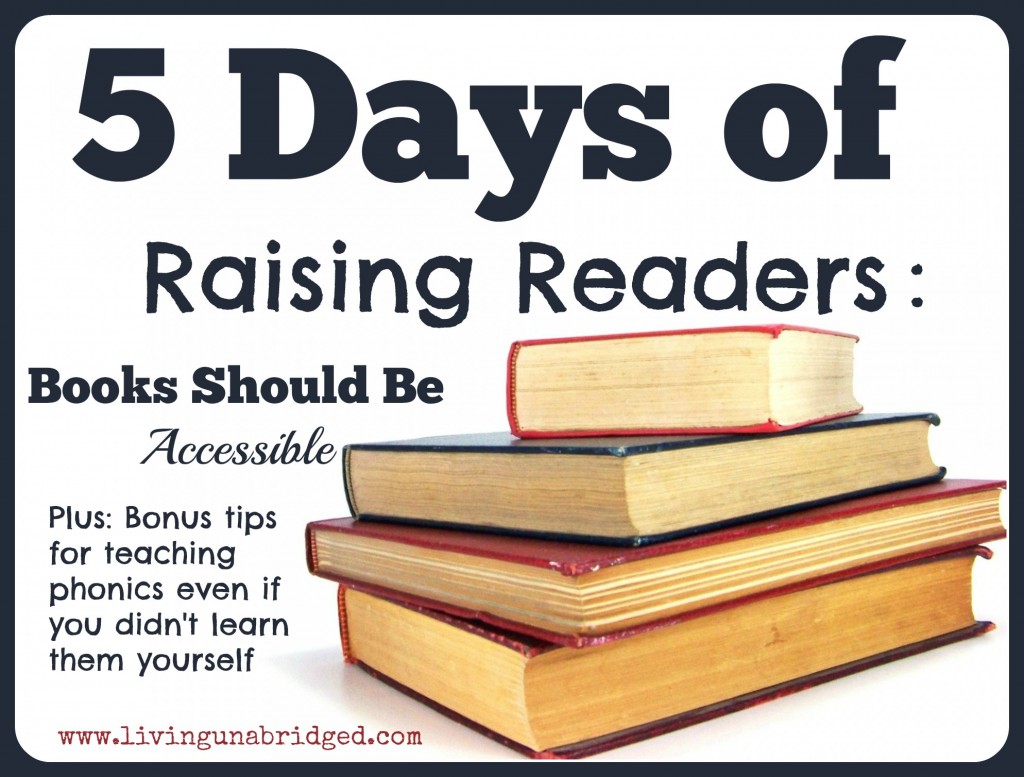Raising a Reader Day 3: Books should be accesible.

What do I mean by accessible?
"Books should be accessible" means books should be everywhere in your home.
Not on a shelf too high to reach. Not hidden away in a closet.
Keep your favorites on shelves they can reach.
Make a big deal about getting a library card.
Let your child check out as many books as you can handle at the library. If you hate a particular book, well, it's going back soon. If you love one, it can go on a child's Christmas wish list, or you can buy it a.s.a.p and you've gained another favorite.
The second aspect of accessibility is the difficulty level.
If you have young readers or small children, shelves filled with chapter books are not going to entice them.
You need board books. And of course you need picture books, whether the beautifully illustrated or the ridiculously humorous (preferably some of both).
Beginning readers need Bob Booksand other phonetically simple books. (This list of Easy / Level 1 Readers may also be helpful)
The third aspect of accessibility is: equip your child.
If you want your child to be a Reader, they need to learn to read phonetically.
Most public schools, despite what they may say, do not teach children to read this way. The "Look, Say" method still employed by most schools simply does not work.
A child may do fine, memorizing lengthy lists of words, in the early grades. But when that child hits third or fourth grade, they cannot possibly memorize enough words at a fast enough pace to keep up with the required work. The child will require remedial attention, whether in school or with a private tutor.
(My husband, who works part time as a substitute teacher and tutor, says that most elementary aged children who need tutoring break down to these two categories: weren't properly taught how to read and weren't required to memorize math facts like the multiplication tables. He spends a lot of time teaching children to read. He spends the rest of his time teaching them to multiply without using a calculator or writing simple problems - 3x10, for example - out on paper.)
So, whether you're a homeschool, Christian school, parochial school, private school, or public school parent: teach your children phonics.
Phonics will give your child the right toolbox for reading whatever comes along in 4th or 8th grade and even college.
What if you weren't taught phonics?
You can learn. Buy this book:The Ordinary Parent's Guide to Teaching Readingby Jessie Wise. It will be the best $25 you spend on your child's education.
You can teach your child how to read with this book and you might learn right along with them.
It isn't hard. It does take time.
I've used this book with three of my children. I'm starting it again with the 4th.
Homeschool mom confession time: I don't love teaching children to read. Sounding things out gets tedious.
But it's one of my most important jobs as a parent, right up there with potty-training. It has to be done.
A child who can read is a child who can learn whatever he or she wants to learn.
To see the previous or later post(s) in this series: 5 Days of Raising Readers
Another possible resource to help reluctant readers:








